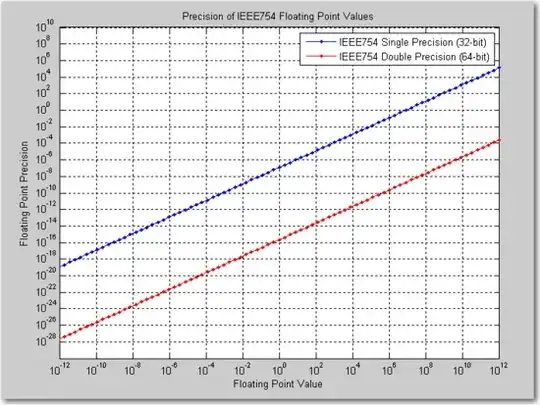Background
I'm trying to make sense of the error in implementations of LWE and R-LWE. In LWE and R-LWE error is added to vectors in lattices to make it computationally infeasible to recover any meaningful data.
It was said here that using float operations in PRNG's aren't reliable enough across different environments.
According to the accepted answer on this question though, it's possible to "trivially" generate cryptographically secure, nearly uniform distributions of floating point decimals.
Questions
- Does the error used in LWE or R-LWE rely primarily on float operations?
- Do float operations need to be in a finite field to be secure?
- Before rounding occurs, are all numbers floating decimals?
Conjectures
My assumption is that Case 1 may be likely, but Case 2 is true. This leads me to believe that only error terms are treated as floating point decimals as a way to maintain efficiency and security, but taking everything either modulo a number or modulo an ideal generates an integer. So in effect, the error taken modulo a number produces a lattice point (integer), or error taken modulo an ideal produces a lattice (finite field).
Is this an accurate assessment?
